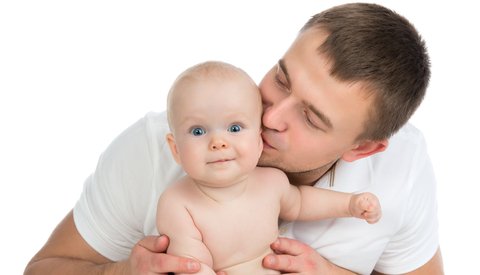The principal developmental task of the first year of life is the establishment of a secure attachment between infant and primary caregiver.
For this bond of emotional communication to develop, the caregiver must be psychologically and biologically attuned to the child’s needs, emotions, and mental state. Beyond the basic function of secure attachment — which is providing safety and protection for the vulnerable young through closeness to a caregiver — there are several other important functions for children:
• to learn basic trust and reciprocity that serve as a template for all future emotional relationships.
• to explore the environment with feelings of safety and security (“secure base”), which leads to healthy cognitive and social development.
• to develop the ability to self-regulate, which results in effective management of impulses and emotions.
• to create a foundation for the formation of an identity that includes a sense of competency, self-worth, and a balance between dependence and autonomy.
• to establish a prosocial moral framework that involves empathy, compassion, and conscience.
• to generate a core belief system that comprises positive perceptions of self, caregivers, others, and life in general.
• to provide a defense against stress and trauma, which incorporates
resourcefulness and resilience.
Children who begin their lives with this essential foundation of secure
attachment fare better in all aspects of functioning as they develop. Numerous longitudinal studies have demonstrated that securely attached infants and
toddlers do better over time in the following areas:
• self-esteem
• independence and autonomy
• resilience in the face of adversity
• ability to manage impulses and feelings
• long-term friendships
• relationships with parents, caregivers, and other authority figures
• prosocial coping skills
• trust, intimacy, and affection
• positive and hopeful belief systems about self, family, and society
• empathy, compassion, and conscience
• behavioral performance and academic success in school
• promoting secure attachment with adult partners and with their own
children when they become adults.
Children who experience a secure base with an appropriately responsive
and available caregiver are more likely to be autonomous and independent as
they develop. The child is able to explore his or her environment with more
confidence and less anxiety, resulting in enhanced self-esteem and feelings of
mastery. Contrary to the belief of some observers, children who experience consistent and considerable gratification of needs in the early stages do not become “spoiled” and dependent; they are more independent, self-assured, and confident. They learn to trust reliable, sensitive, and attuned caregivers.
This secure attachment relationship is a foundation for a positive sense of self, and a template for healthy future relationships.



Interesting read. I have just received my book on attachment back from the editor with lots of work to do on it yet. This totally resonates with me.
Excellent article! It would be awesome if you could add to these important functions the way they can be achieved. How parents can be psychologically and biologically attuned to the child’s needs, emotions, and mental state in order to make those functions possible.
Greetings!
See our website and books for more info